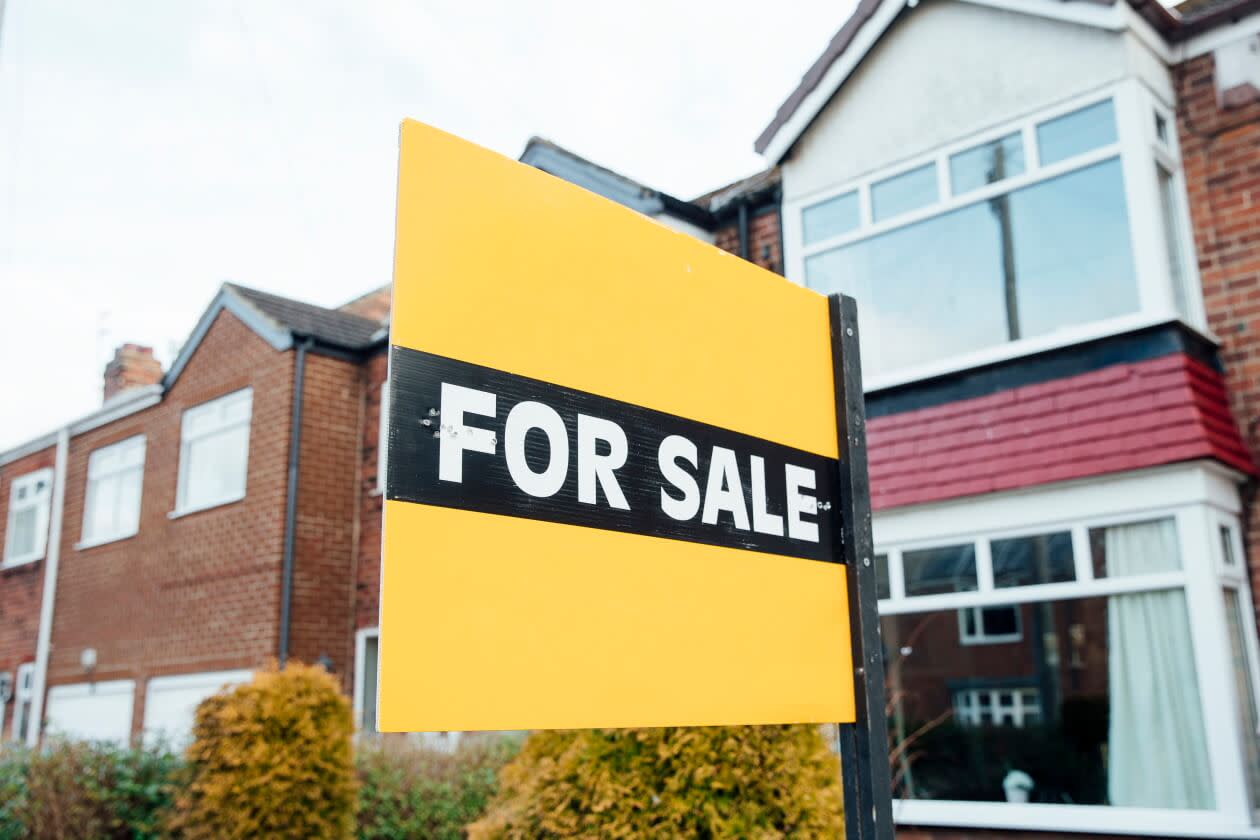Home buyers have just days left to complete deals before potentially being clobbered with thousands of pounds in extra stamp duty costs.
From April 1, “nil rate” stamp duty discounts for home buyers will shrink.
Among the changes, first-time buyers will see their “nil rate” band reduce from £425,000 to £300,000 and home movers will see their zero rate threshold halve from £250,000 to £125,000. Stamp duty applies in England and Northern Ireland.
Colleen Babcock, a property expert at Rightmove, said: “More than half a million homes are currently going through the process of legally completing.
“Home movers who are in England, and still have a chance to beat the March 31 stamp duty deadline, will be rushing to finalise their paperwork, and doing all they can to avoid paying higher tax charges from April.
“Most affected by the higher charges will be first-time buyers in higher-priced areas of the South, where some could pay up to £11,250 more in stamp duty from April.
“London, one of the most affected areas due to higher property prices, is where we’re seeing more first-time buyers going through the completion process compared to last year, many who will spend the coming days trying to beat the deadline.
“Agents tell us they don’t expect a major impact on activity after March’s deadline, and that they have been working with buyers and sellers to factor in additional charges.
“There are still many areas of England where there is good availability of homes under the stamp duty-free threshold for first-time buyers.
“Overall, we’re still seeing greater demand from new buyers than a year ago, which is encouraging for the rest of the spring market.”
Calculations by Rightmove show how first-time buyers in London who are looking to escape stamp duty charges could be particularly affected.
The website estimates that less than one in 10 (9%) homes on the market in the capital are priced at under the £300,000 “nil rate” threshold kicking in from April 1, compared to 27% which are under the current £425,000 zero stamp duty threshold.
By comparison, in the North East of England, three-quarters (74%) of homes for sale will still be under this threshold from April 1, down from 87% currently, Rightmove estimates.
According to research from Barclays, home buyers estimate they will pay £6,512 in additional fees on average if their sale is not completed before the April 1 deadline.
The Opinium survey of 2,000 people commissioned by the bank found that four in 10 (40%) people cite the cost of a deposit as one of the biggest barriers to owning a home and 23% of younger adults in the Gen-Z generation (aged 18 to 27) are undertaking side hustles to help raise a home deposit.
On average, UK homeowners who had used additional strategies to get on the property ladder faster, such as investing in financial products, said their efforts had helped them buy a property around two years earlier than they had initially expected.
Law firm Taylor Rose, which is headquartered in Peterborough and has offices in London, said it has seen conveyancing instructions nearly double in the first two months of this year, compared with the same period a year earlier.
Hannah Wright, head of new business at Taylor Rose, said solicitors are “working around the clock” to ensure completions can take place before the end of March.
She added: “But even after the threshold changes, we predict that demand will remain high as we move into spring, and we expect a very busy period for the conveyancing sector.”
For those who fail to meet the deadline, there may be some consolation from some lenders launching mortgage deals with cash “sweeteners” in recent days.
Yorkshire Building Society unveiled a new mortgage range this week, offering first-time buyers up to £6,250 cashback.
The society’s director of mortgages, Ben Merritt, said the move “is designed to help cushion that blow (of the stamp duty changes) for the majority of aspiring homeowners”.
Nottingham Building Society has launched new mortgages offering up to £5,000 in cashback to help soften the blow for buyers.
Skipton Building Society has also launched a new cashback range.
Charlotte Harrison, CEO of home financing at Skipton Building Society, said that to help buyers complete deals in time “our teams will work round the clock, doing extra hours”.
Richard Donnell, executive director at Zoopla, said that while the stamp duty change “will boost government revenues, it does risk dampening activity in some parts of the market”.
He continued: “Home buyers will expect to reflect this extra cost in their offers, typically looking to split the cost with the seller. On the whole the amounts are not large, but the overall impact will keep house price growth in check over 2025.”
In February, Zoopla calculated that the proportion of first-time buyers in England and Northern Ireland who will need to pay stamp duty will double from April.
Zoopla estimates the share of first-time buyers paying the tax will jump from 21% to 42%.
Meanwhile, the proportion of existing homeowners buying a new home as their main residence who will be liable to pay stamp duty will increase from 49% to 83%, according to Zoopla’s calculations.
Overall Zoopla estimates that the stamp duty changes could add an extra £1.1 billion annually to government coffers.
The website’s analysis was based on buyer inquiries to estate agents and property prices and excludes the impact of those buying additional homes.
This article was written by Vicky Shaw from The Independent and was legally licensed through the DiveMarketplace by Industry Dive. Please direct all licensing questions to legal@industrydive.com.

